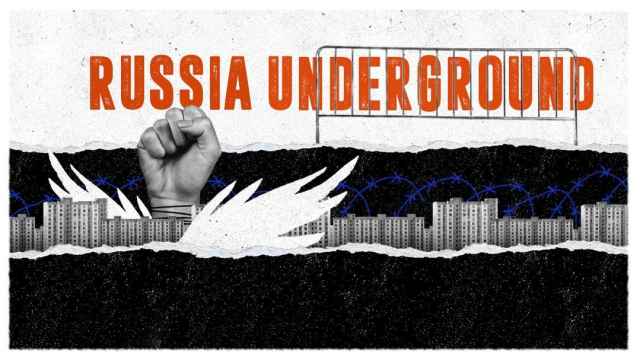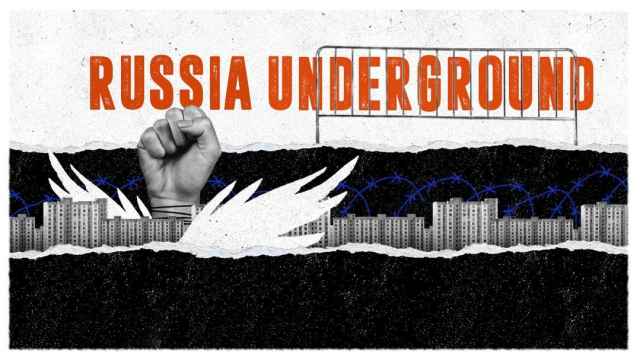Харассмент: harassment
How is it that I’ve never written about домогательство? This word and issue — what is usually called harassment in English — have come up plenty of times in the past. But this week the subject came up, stayed up and is screaming for attention.
What’s interesting to me is the language used to describe harassment. Some Russians have begun to use the borrowed word харассмент (harassment), which at first I thought rather silly since there is a perfectly good native word, домогательство. But after considering the etymologies and usage over the years, now I’m not so sure.
But first things first.
Домогательство is the noun from the verb домогаться. The verb is derived from могати (to have power) which we now know as the verb мочь (to be able). The prefix до- suggests doing something to completion, through and through. So домогаться is to achieve something through persistent effort. Домогательство is any kind of repetitive or unrelenting request, solicitation, or demand.
That is, домогательство is getting your way even if the other person, company, organization, or state doesn’t want it — bullying someone into doing what you want.
For most of its history, домогаться and домогательство were used in non-sexual contexts. Домогательство can mean criminal activity: Граждане России имеют право защищаться от преступных домогательств не оружием, а неэффективными, бесполезными предметами (Russian citizens can defend themselves against criminal harassment not with a weapon but with ineffective and useless objects.)
The word has been used a lot in geopolitical relations: Проехав Босфорский пролив, мы увидели город, предмет домогательства многих держав в течение более полутора тысяч лет (Once we got through the Bosphorus we saw the city that so many nations had tried to capture for more than 1500 years.)
And it refers to any kind of insistent request: Нельсон, не постеснявшийся письменно выпрашивать у Павла высокой русской награды для Эммы Гамильтон, несколько опоздал со своим домогательством, так как царь очень уж стал сердиться на англичан (Nelson, not too shy to ask Paul in writing for a high-ranking Russian award for Emma Hamilton, was a bit too late with his petition, since by then the tsar was very angry at the English.)
It has been used a lot in politics, especially when beleaguered nations nobly reject the bullying of larger neighbors. Домогательства (pressure, threats, bullying) during the Soviet period were usually буржуазные (bourgeois) or империалистические (imperialist): Румынский народ с презрением отверг домогательства англо-американских империалистов в отношении участия Румынии в “плане Маршалла” (The Romanian people disdainfully rejected Anglo-American pressure to take part in the Marshall Plan.) Во время референдума польский народ в своем большинстве отклонил эти домогательства империалистической реакции (In the referendum the majority of the Polish people rejected the pressure put on them by imperialist reactionary forces.)
Сексуальное домогательство means having your way with a person sexually: Выступаю против сексуальных домогательств и пренебрежительного отношения, дискриминации женщин (I am against sexual harassment condescending attitudes, and discrimination against women.) Депутат домогался ее в 2011 году, пригласив к себе в офис для обсуждения интервью (The deputy sexually harassed her in 2011 after inviting her to his office to discuss an interview.)
To harass means pretty much the same thing as домогаться, and also is used in a range of contexts, from the boardroom to the battlefield: to torment, bother continually; pester; persecute; to trouble by repeated attacks, incursions, etc., as in war or hostilities. But its origins are very different: it’s from the French harasser, from harer (to set a dog on, from Germanic hare, a cry urging a dog to attack).
So домогаться has to connotation of getting what you want through strength, while to harass has the historical echo of setting the dogs on someone.
Now I see why some Russians might prefer to use харассмент.
In any case, what it is not: It is not неприятный инцидент (an unpleasant incident) or некорректное поведение (inappropriate behavior). A person does not оказывать знаки внимание (show interest) or несколько назойливо ухаживать (court a bit too insistently).
You can deal with those behaviors with a sharp word. But домогательство makes you want to do something else, as one person who suffered from it said: Я хочу пойти и набить ему морду (I want to go beat his face in.)
So remember: If you get slugged, chances are it was харассмент.
Michele A. Berdy is a Moscow-based translator and interpreter, author of “The Russian Word’s Worth,” a collection of her columns. Follow her on Twitter @MicheleBerdy.
A Message from The Moscow Times:
Dear readers,
We are facing unprecedented challenges. Russia's Prosecutor General's Office has designated The Moscow Times as an "undesirable" organization, criminalizing our work and putting our staff at risk of prosecution. This follows our earlier unjust labeling as a "foreign agent."
These actions are direct attempts to silence independent journalism in Russia. The authorities claim our work "discredits the decisions of the Russian leadership." We see things differently: we strive to provide accurate, unbiased reporting on Russia.
We, the journalists of The Moscow Times, refuse to be silenced. But to continue our work, we need your help.
Your support, no matter how small, makes a world of difference. If you can, please support us monthly starting from just $2. It's quick to set up, and every contribution makes a significant impact.
By supporting The Moscow Times, you're defending open, independent journalism in the face of repression. Thank you for standing with us.
Remind me later.






